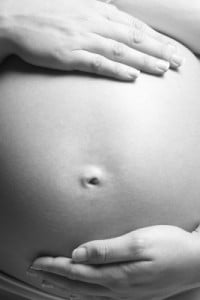
The flash-freezing technique pioneered in Canada freezes the extracted egg from women and sinks it in liquid nitrogen at -196 degree C. Those who have developed the technique believe it to be ‘single greatest advance in reproductive “choice” since the Pill’s invention pushing the ‘reproductive capacity’ of women.
The process of egg freezing is legal but unregulated and those not favoring it think that it will only encourage woman to push their pregnancies further. With the current trend already moving towards women becoming mother later in life, leading to complications for the mom and the child, some experts feel the freezing will only heighten complication risks.
Views are also divided regarding the social angle of this process. Questions like, woman’s age, freezing period, upper age limit for bearing a child etc. are being asked. Others on the contrary feel that a woman should be allowed to become a mother whenever she feels like it, and age limits should not be imposed on her child bearing right.
The freezing technique itself is not that simple. The willing woman has to inject herself with fertility drugs for ten days so that she produces more eggs than that produced normally. Then there are several blood tests, ultrasounds and the retrieval of the eggs with an ultrasound guided needle.
At the McGill Reproductive Centre 30 children have already born using the technique and 12 other women have their eggs frozen. Founder, Dr. Seang Lin Tan is also offering the same technique in his new centre Montreal Reproductive Centre.
Freezing an egg is a challenging process as it is very sensitive to the freeze-thaw process but Tan and his colleague Dr. Ri-Cheng Chian, have refined a freezing technique known as the vitrification method. In this the freezing occurs so fast that no ice crystals are formed. The thawing too is almost instantaneous.
Dr. Tan believes it is especially a boon for women in their 30s who are not ready to become mothers because they do not have a partner.
“Every year across the country there are many women in their 30s who, because they don’t have a partner, choose anonymous sperm donation. If they were given a choice to freeze their own eggs and have a child with someone later, rather than use an anonymous sperm donor, many women would prefer that.”
He also stresses that the process is not a replacement for natural reproduction but only an alternative.
“While it would be “ideal” for women to have children while they’re young,”Dr. Tan says, “ — and society should do its best to support women to do so, it isn’t feasible for everyone.”
The doctor also points to another factor. Usually women in their 30s have lower quality of eggs and that may result in abortions, miscarriages or other complications. If through the process they can freeze their eggs in the early 20s they also have a chance to preserve good quality eggs.
In Toronto, the LifeQuest Centre for Reproductive Medicine offers egg freezing too but the cut off is women under the age of 37. Dr. Carl Laskin, founder says “It’s not worth their while to do it, they may find somebody else to do it, but we certainly wouldn’t do it.”
Egg freezing was initially done for those women who were fighting life threatening diseases like cancer or a problem that could lead to early menopause. Dr. Tan says he has frozen more than 200 women’s eggs who have had to deal with such critical health problems. He also feels that the technology today has become so advanced that eggs can be frozen for many years.
But critics disagree.
“The consensus of opinion is that if an egg fertilizes and it develops to an early embryo and we implant it into a uterus and it grows, everything is pretty much OK,” says Dr. Roger Pierson. “But we don’t know how that is going to affect their long-term development. There are things that we just can’t test in animal models.” There’s also no guarantee of a baby in the end, he says.
The egg freezing does provide security to women knowing they will have eggs when they wish to get pregnant, but it does not guarantee a baby.
Dr. Al Yuzpe, cofounder and co-director of the Genesis Fertility Centre of Vancouver worries what might happen if the trend becomes popular,
“What’s that going to do to society in the long term?” he asks. “I think the number of these women electing to do (egg freezing) would shift the demographics. It’s fun to grow up with your kids when you raise them, not to start having them when you’re ready to retire.”
Egg freezing is a controversial subject for now with many agreeing and many disagreeing to the idea of it. But for women who are taking the choice, the ultimate freedom is stopping their biological clock as says Mamta Shah who used the technique, “Egg freezing really gave me a sense of comfort. It was like mommy insurance.” – Atula, Staff Writer
Related Articles:
- Is Laughter The Secret To Sucessful IVF?
- Mother’s Stem Cells May Treat Genetic Disorders in Unborn Infants
- Study: Pregnant Woman Are Full of Chemicals






